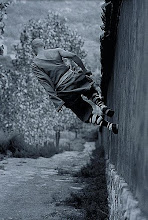http://life.hereisthecity.com/the_soul_clinic/mind_and_body/846.cntns
Zen masters throughout history are known for breaking with convention, and Zen Master DenisGenpo Roshi, a practitioner for almost 40 years, is no exception. He'll be coming to London this weekend as part of the Big Mind, Big Heart Weekend Workshop with guest Paul McKenna.
You’ve been coming to Europe for more than 20 years. This time you are working with TV hypnotist Paul McKenna, who just signed a big deal in the US too. A Zen Master and a hypnotist might not seem an obvious combination. How did that come about?About a year and a half back, a student of mine got in contact to say he’d heard Paul on the radio in the UK (on Desert Island Discs) talking about books that had changed his life. One of them was my book, The Path of the Human Being. He said he’d found someone really talking to him in a way that made sense and he highly recommended it. So when my latest book (on the Big Mind process) came out, I sent Paul a copy and he got in touch. He said he’d started to come to the States a lot and he was working on a deal in Hollywood. He and his friend Michael Neill came out to Utah to see me, and they said it was the most incredible experience. We’ve met for lunch in Los Angeles and become good friends since. He offered to come along next time I was in London to help promote the Big Mind work. It’s very generous of him to give up his time.
Does Zen or Big Mind have a place in the financial world?
It seems Big Mind is flowing and filtering through to different parts of our society - judges and lawyers, mediators, therapists, psychoanalysts, teachers, educators, the armed services. Buddhist teachers, rabbis, priests, personal coaches and doctors are using the Big Mind/Big Heart work in their respective fields. I was just invited this March to do some work with soldiers who have returned from Iraq, men and women suffering from post-traumatic stress. I have done some teaching at the U.S. Air Force Academy too, and some of the people there have become involved with the Big Mind work. I was also invited to share the work with an international group of philosophers two years ago, and with a group of personal life coaches next May.
I think there’s a real appetite for the spiritual in the City. There’s lots of yoga, martial arts, relaxation. The tough part is blending it with the demands of working in the business world. I really struggled with that at first, I saw them as separate, different.
I really want to say I admire those who are doing that. I have great respect for that. I started off with a more or less monastic practice. I made a decision in ‘94 to open up Zen practice here at my Zen Center to the world, to the marketplace. The business marketplace mind and the spiritual mind are two aspects that have to work together. The marketplace mind has to be competitive and get the job done. Then where does that leave the spiritual mind? There has to be one mind, with all the seemingly contradictory aspects working together, otherwise there’s conflict and we are at war with ourselves and that dissipates our energy. If we bring these together, there’s so much energy. I mean, I’m 64, and even after cancer there’s an abundance of energy, and that’s because there’s no conflict. When there’s conflict between the spiritual and the ‘real world’ it is debilitating. My energy is better than it has ever been my entire life.
(Laughs) I’m afraid I’m still very much in the conflict stage, if I’m honest. I’m just going to plough on through it and see how it goes. It’s a journey.
It’s really a matter of owning all aspects of your self, and using them in a wise and compassionate way. Every aspect, every possible state of mind, the worldly and the wisdom of the ages, is in all of us. We just need to own them.





